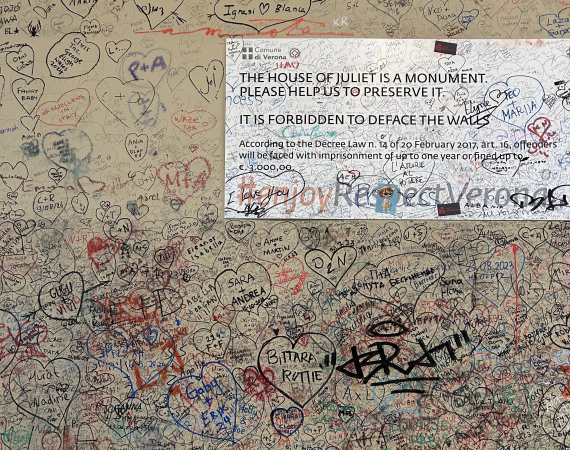Posted on Wed 13 Aug 2025
Notes on trust
Some reflections on what it means to try and trust ways of thinking and acting that are not my own.

THE HOUSE OF JULIET IS A MONUMENT
Posted by
Project

Murmurations: a mutual research exchange
Research is an earth making practice. It is about recognising that what happens to others relates to what happens to us.In a previous post I made a commitment to trust. Trust is highly relevant to my work as Executive Producer of Pervasive Media Studio. It is core to how we try to support creative practice (with money for example). As a research and development space we should be trusting people with the resource to try out new ways of doing things. This is particularly important when working with people who come from the Global Majority (and/or Others) whose actions, opinions, knowledge and experience are often judged with suspicion.
Actively building in trust means working with my team to re-think standard organisational structures, processes and policies. And it means shifting how I as an individual relate to the people around me, how I learn to trust ways of thinking and acting that are not my own.
I am trying to imbue my immediate relationships with a deep sense of trust as part of letting go of Whiteness in my work and home life. For me, this is not about learning who to trust as much as it is about enacting real trust towards those I want to be in partnership with. Building trust is, of course, a mutual process and I hope that in evolving my own behaviour I can create space for reciprocal trust to gently blossom.
Here are a few notes on how it is going.
Trust is waiting. To be honest I find waiting really hard, but I am trying.
I am trying to wait when someone reacts to something that I say in a way that I don’t understand (especially, but not only, if their reaction is critical). I might listen to a voice note, read a comment in a document, have half a conversation and then need to pause. Taking my confusion for a long walk. This helps me to move past the bit where I am working out how I can explain what I mean better, to the bit where I am just curious about what things mean for the other person - and what I can learn from that.
If I wait, I find that a different way of processing what has been communicated becomes possible. A kind of deep listening that extends out in time and space. It might be a stretch to link to Pauline Oliveros’ work here but I do mean expanding my way of sensing to notice the relationship between what is said and what is unsaid, so maybe it is appropriate. Waiting allows patterns to form that shift into understanding with a tilt of my head. Trusting in time also allows for the world to happen, and listening to that can open up new possibilities.
Trust is rehearsal. It means setting down my script and arriving again – ready to try and make something new together.
Often when I think about trust, I think about Tanuja Amarasuriya talking about the rehearsal room as a place we make things that don’t yet exist. Tanuja asks people to think about where they feel safe to not know, and I think that is a wonderful question. I have found that I can rehearse better away from the places that hold too much existing knowledge (like an office).
I think it might help to think about what it means to be an amateur. I heard the brilliant Jemma Desai talking about this recently. I love how Jemma invokes the idea of being an amateur as a way of letting go of performed expertise but I don’t really like the word - especially next to my script metaphor – it makes me think of doing cringy am dram. But it is useful to not like things, it helps me to feel what I do like and why. I like being seen as a professional and I probably need to let go of that a bit. Professional culture comes with so many existing rules and expectations which makes it hard to rehearse new ways of being together.
Trust is love. It is being care-ful. It is knowing that the most important thing in this work is how we are.
It is the gift of attention, of compliments, of sleep, of good food, of the things that we need to feel cared for. Loving myself means that I have the resources to act with intention. bell hooks says that love is an action, it is about extending oneself for one’s own or another’s spiritual growth. I like that definition, even though I don’t like using the word spiritual. It makes me feels uncomfortable and a bit embarrassed.
This discomfort reveals where I trust easily and where I need to try harder. I tend to trust rational sounding explanations for things, ones that show clear cause and effect between what I just did and what happened next. I am reading The Maniac by Benjamin Labatut at the moment. It reminds me how in developing Game Theory John von Neuman and friends encoded a mathematical fiction into so much of the culture I grew up in. Game Theory proposes that human behaviour can be understood as a series of predictable events by individual rational actors. It has been widely influential across the teaching of political science, economics, computing, philosophy and biology in Western education. It perhaps found its ultimate expression in the horror of mutually assured destruction - which is surely the opposite of love and trust – so doesn’t sit very easily alongside notions of spiritual growth.
So I am having a go at all this (getting it wrong quite a lot) and in the meantime I am wondering about all of this trying. Do you see how much trying there is in these notes?
Isn’t it very trying to be trying? It doesn’t seem very sexy, its perhaps a bit over-thinky and neurotic. Sometimes it feels a bit like going mad to be honest. I wrote to Erinma about this recently, who invited me to look again at what I was saying through a feminist lens – to see my acts of care and to notice how they are undermined.
Trying is reproductive labour and it matters. Reproductive labour is a Marxist idea that highlights the, often unpaid and unrecognised, domestic work that societies (and economies) are built on. It is the repeated exertion of keeping things going not because it’s the rational action in a world of competing individuals - but because we are collective beings that are completely interdependent. So maybe valuing the effort that it takes to try, is in itself resistance to the same destructive logic that teaches me not to trust.
Which I will keep reminding myself of as I try harder, try softer. A kind of trying that isn’t as much driving forwards as it is slowing down and lightening up. It has been helpful for me to me to write these things down, it will help me to remember them as I stomp down the stairs ready for an argument or compose a long email in my head to explain how this is the way that things are always done.
Wait, how about rehearsing a different thing, show some love.
